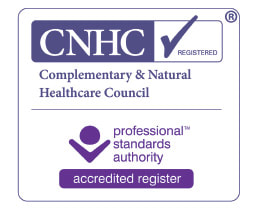Mindfulness - is it enough?In recent years, mindfulness has become increasingly popular as a tool for managing stress and anxiety. Mindfulness has become a popular technique for managing stress and enhancing overall well-being. From yoga studios to boardrooms, people everywhere are embracing the practice of being present in the moment, non-judgmentally, and with focused attention. But is mindfulness always the best approach? In this article, we'll explore the benefits and limitations of mindfulness, and suggest other approaches to consider.
Its popularity is due in part to the numerous studies that have demonstrated its effectiveness in reducing symptoms of stress and anxiety. However, as with any tool, mindfulness has its limitations. In this post, we'll explore the limitations of mindfulness and why it may not be a panacea for stress. Mindfulness as a coping mechanism for stress Mindfulness is a practice that involves paying attention to the present moment without judgment. It has been shown to be effective in reducing symptoms of stress and anxiety, such as rumination and worry. Mindfulness helps people to become more aware of their thoughts, feelings, and bodily sensations, and to develop a more accepting and non-judgmental attitude towards them. This, in turn, can lead to a reduction in stress and anxiety. Numerous studies have demonstrated the benefits of mindfulness for managing stress. For example, one study found that mindfulness-based stress reduction (MBSR) reduced symptoms of anxiety and depression in patients with chronic pain. Another study found that MBSR reduced symptoms of anxiety and depression in patients with generalized anxiety disorder. Benefits of mindfulness can include:
The Limitations of Mindfulness While mindfulness can be an effective tool for coping with stress and anxiety, it is not a panacea, and not a cure-it-all approach. I liken it to being a ‘sticking plaster’, helping you to cope however it doesn’t resolve underlying issues. And as we know, if you don’t find and fic the issues the problem will continue to exist, and you will be living in ‘survival mode’ for longer. Some people may find that mindfulness is not helpful for them or that it even exacerbates their symptoms. Here are some potential downsides of mindfulness to consider:
When Mindfulness May Not Be Beneficial While mindfulness can be helpful for many, it's not always the best approach for everyone. Some situations where mindfulness may not be beneficial include:
Other Approaches There are other approaches beyond mindfulness that can also be effective for managing stress and improving overall well-being. These may include hypnotherapy, reiki, EFT (Emotional Freedom Techniques), and EMDR (Eye Movement Desensitisation and Reprocessing).
In Conclusion Mindfulness has become a popular technique for stress management and enhancing overall well-being. It has been shown to have numerous benefits, such as improving attention, reducing stress and anxiety, and increasing emotional regulation. However, mindfulness is not a one-size-fits-all solution, and there are limitations and potential downsides to the practice. Some of these downsides include the potential for increased negative emotions, the possibility of triggering past traumas, and the risk of overemphasizing individual responsibility for mental health. It's also important to recognise that mindfulness is not a substitute for professional help when it comes to mental health issues. As with any tool or technique, mindfulness should be approached with a critical and thoughtful mindset, and used in combination with other approaches, such as therapy, exercise, and social support. Mindfulness can be a valuable tool, but it's important to be aware of its limitations and potential drawbacks. Comments are closed.
|
Categories
All
|
Reiki | Hypnotherapy | Massage | Book Appointment | Blog | FAQS | Events |
About Me | Find Me | Contact Me
Terms of Business | Privacy Policy
Providing Hypnotherapy, NLP, EFT, Reiki Healing, Spiritual Readings, Massage & Holistic Therapy Treatments and Workshops in Hampshire: Basingstoke, Alresford, Alton, Winchester and the surrounding areas.
About Me | Find Me | Contact Me
Terms of Business | Privacy Policy
Providing Hypnotherapy, NLP, EFT, Reiki Healing, Spiritual Readings, Massage & Holistic Therapy Treatments and Workshops in Hampshire: Basingstoke, Alresford, Alton, Winchester and the surrounding areas.









